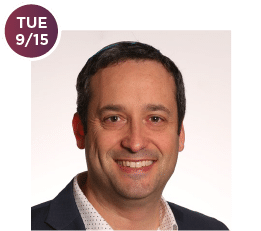-
11 September 2020

By Rabbi Ben Berger
 In many ways, for Hillel, much of the summer provides that time or reflection, recuperation, and readying for the year ahead. Despite the obvious challenges of this summer, Hillel remained steadfast in delivering content rooted in our core values. Our Hillel U suite of learning opportunities reached nearly 500 new and continuing professionals. Besides providing content and skill enrichment for those professionals, we model ways they can engage and educate their students year-round. What we’ve learned in Hillel can have resonance and meaning for all of us as we enter the month of Elul.
In many ways, for Hillel, much of the summer provides that time or reflection, recuperation, and readying for the year ahead. Despite the obvious challenges of this summer, Hillel remained steadfast in delivering content rooted in our core values. Our Hillel U suite of learning opportunities reached nearly 500 new and continuing professionals. Besides providing content and skill enrichment for those professionals, we model ways they can engage and educate their students year-round. What we’ve learned in Hillel can have resonance and meaning for all of us as we enter the month of Elul.
The word Re’eh that begins the Torah portion we recently read is often translated as “behold” for poetic effect. The commentator Ibn Ezra reminds us of its true meaning: Moshe saw every individual. Our strategy and tactics point to one clal gadol: learning in this digital age requires a deep commitment to seeing each student. While perhaps cliche, the meme “I feel seen” has even deeper resonance in Covid times where technology is the primary platform for social interaction, which risks leaving us feeling isolated and anonymous. Indeed, college students who are juggling multiple emotions, are among the most at risk of feeling “unseen.”
Allowing students to feel seen is the animating principle of what we do. Here are 5 ways we create that experience for participants. 1. Prioritizing small groups and cohorts that are ongoing rather than large events, making virtual platforms a space for content delivery and relationship development. 2. We send packages that not only surprise and delight recipients, but that are also closely linked to our learning goals. 3. We connect students to an educator to serve as teacher and mentor; an essential connection under these circumstances. 4. We facilitate learning beyond the screen: walking chevrutas, solo meditation, journaling, etc. 5. We focus on the Torah that has maintained us through generations, recognizing that it remains relevant in the most challenging times.
This piece was part of a larger group of reflections on the state of Jewish education orginally published in eJewish Philanthropy. the sense in the world?
